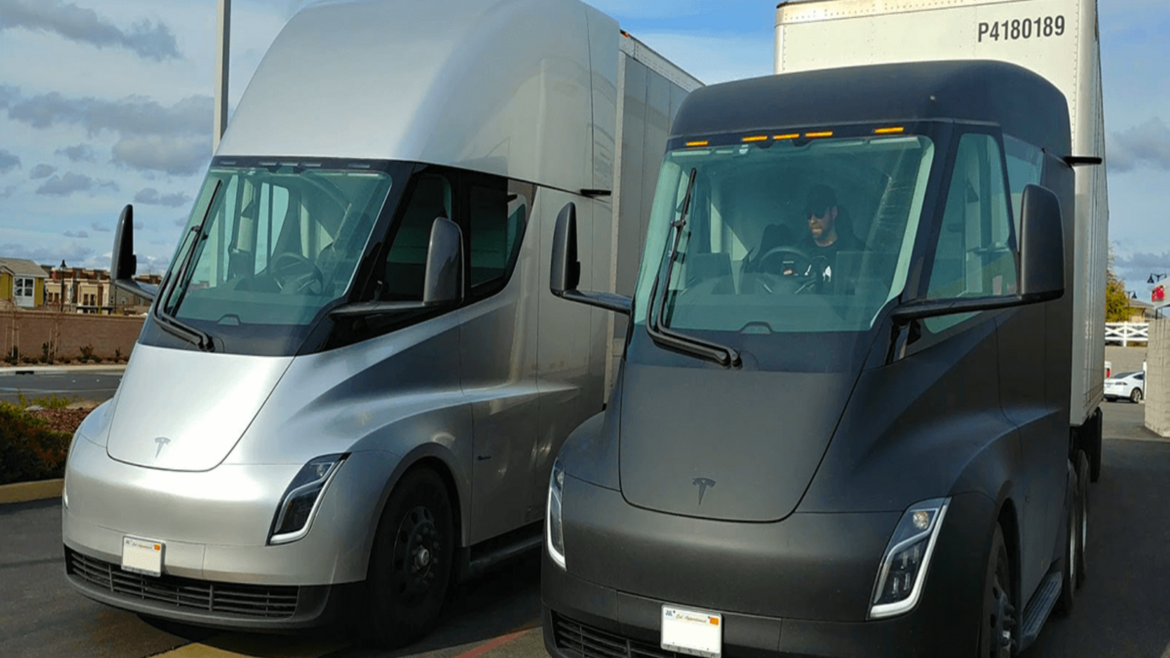The U.S. trucking industry, responsible for moving more than 70% of all freight in the country, has long been a pillar of economic growth and development. However, it has also been a significant contributor to carbon emissions. As environmental concerns continue to gain traction, the trucking industry faces increasing pressure to adopt greener and more sustainable practices. One promising solution is the rise of electric trucks.
Why Electric Trucks?
The push toward sustainability in the trucking industry is driven by several factors:
Electric trucks are transforming the trucking industry, offering a cleaner, more sustainable way to move freight. Discover how these innovations are reducing emissions and shaping the future of logistics.
- Environmental Impact: Heavy-duty diesel trucks are one of the largest sources of greenhouse gas emissions in the transportation sector. Electric trucks promise to reduce or even eliminate tailpipe emissions, significantly lowering the industry’s carbon footprint.
- Government Regulations: Federal and state governments are implementing stricter emissions regulations, with states like California leading the charge with their Advanced Clean Trucks (ACT) regulation. These mandates are pushing trucking companies to explore cleaner alternatives.
- Rising Fuel Costs: Volatile fuel prices have always been a challenge for trucking companies. By switching to electric trucks, companies can reduce fuel expenses and stabilize operational costs over the long term.
Electric Trucks on the Road Today
Leading manufacturers like Tesla, Freightliner, Volvo, and Nikola are investing heavily in the development of electric trucks. Tesla’s Semi Truck, with its sleek design and promise of up to 500 miles of range on a single charge, has garnered significant attention. Other manufacturers, such as Volvo’s VNR Electric and Freightliner’s eCascadia, are already delivering electric trucks that are being used for regional hauls.
These trucks are designed for a variety of applications, from short-haul urban deliveries to long-haul routes, and they boast impressive efficiency. For example, electric trucks require less maintenance compared to diesel trucks, as they have fewer moving parts, which means less wear and tear.
Challenges to Adoption
While electric trucks offer promising advantages, the industry faces several challenges before widespread adoption becomes a reality:
- Infrastructure Development: The lack of a robust nationwide charging infrastructure is a major hurdle. Although charging stations are being built in strategic locations, the current network is insufficient to support long-haul operations on a large scale.
- Battery Technology: Although battery technology has made significant advances, there is still room for improvement in terms of range and charging times. For long-haul trucking, the limited range of electric trucks compared to diesel models remains a concern.
- High Initial Costs: Electric trucks come with a higher upfront price compared to diesel trucks. However, many industry experts believe that the lower operating and maintenance costs, combined with government incentives, will offset these costs over time.
The Road Ahead: Electrifying the Future of Trucking
Despite the challenges, the future looks bright for electric trucks. Industry leaders are confident that continued technological advancements and investment will address the hurdles of infrastructure and cost. Several large companies, including Walmart, PepsiCo, and Amazon, have already committed to integrating electric trucks into their fleets, setting a trend that is likely to influence the broader industry.
- Government Support: To encourage the adoption of electric trucks, federal and state governments are offering incentives, grants, and subsidies. These financial supports are aimed at offsetting the high purchase price and helping companies transition to greener fleets. The Biden Administration’s focus on clean energy and infrastructure also signals continued governmental backing for sustainable transportation solutions.
- Sustainability Goals: For many companies, the switch to electric trucks aligns with broader corporate sustainability goals. Reducing carbon emissions not only helps the environment but also enhances a company’s reputation with consumers and investors increasingly favoring eco-friendly practices.
Conclusion
The rise of electric trucks represents a significant shift toward a more sustainable future for the trucking industry. While challenges remain, the potential benefits — from reducing emissions to cutting fuel costs — make electric trucks a game-changer for the logistics sector. As technology continues to evolve and infrastructure improves, electric trucks are poised to become a critical part of the U.S. transportation landscape, driving the industry toward a greener and more efficient future.


Leave a reply